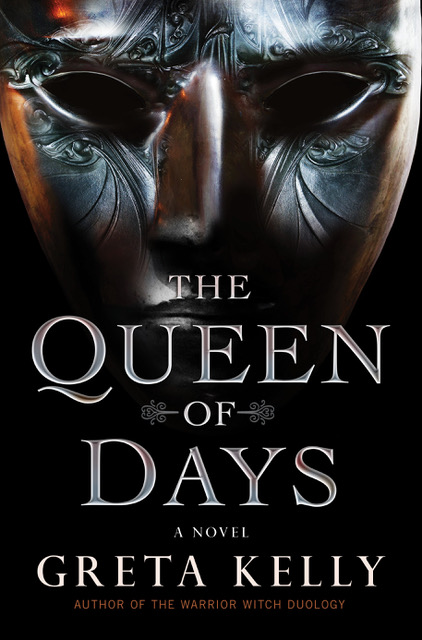
Greta Kelly is joining us today to talk about her novel, The Queen of Days. Here’s the publisher’s description:
From Greta Kelly, the author of the Warrior Witch duology, comes The Queen of Days, an epic adventure that weaves together a flawed-but-lovable family of thieves, a battle between fallen gods, and stakes high enough to cause vertigo—perfect for fans of The Lies of Locke Lamora and Six of Crows.
What’s Greta’s favorite bit?

Greta Kelly
Think about any story filled with vampires and elves and tell me it isn’t a love note to eternity. To a forever we will never have. But what is it about immortality that draws us in? Why do so many people fantasize about casting aside the shackle of mortality, just to jump into the cage that is eternity? Is the lure of being forever young enough compensation for the loss that is age and wisdom?
I don’t know. But I suspect that unlimited time is more burden than boon.
At least that was the attitude I took when creating the Ankaari, the immortal race of beings in THE QUEEN OF DAYS. Immortal in theory, anyway, because as the titular Queen of Days herself, Tassiel explains, anything that can die, does. And while they stylize themselves as gods—accepting the worship of humanity from afar, the reality is more complicated. Of course, the fact that they’d allow such worship is just one aspect of their capricious nature. (And, you know, if I’ve learned anything from Ghostbusters it’s that when someone asks if you’re a god, you say yes.)
It is that same fickleness that makes most of the Ankaari we meet in the story dangerously childish in their desires. Not childish in the sense of innocence, but childish in their sense of entitlement. What they want, they will try to take. And when they’ve been wronged? They will horde those grievances, compress and pressurize them in the vault of their perfect memories until all that is left is a drive for vengeance that is as strong as diamond and twice as cold. You see, at their core, the Ankaari are very human. Albeit humans untouched by time. And in my little writerly heart, I wanted to play with that.
Themes of time and memory and vengeance abound in THE QUEEN OF DAYS, but nowhere is that more apparent than with Tassiel and her people. And it was in writing the scene where Tass explains to the main character, Bal, that her people aren’t gods—just a race of terminally bored immortals bent on conquering, that we reach one of my favorite passages in the book. A place where Tass explains that being forever young means being forever untouched by time. Not just in body, but in memory too. And that is the real curse:
“Because you are human, your memory is filled with ghosts. They may haunt you, but they cannot touch you. The past changes you, yes, but it does not chain you. This is a blessing, Bal, one that allows you to heal and sometimes even to forgive. The Ankaari do not have this gift. In a world where time is still, the past is never the past.”
I loved writing this exchange, and it was one of the passages that changed very little from the first draft to the last. I think what spoke to me—what still speaks to me—was how Tass in her weary immortality, explains that the things we think are weaknesses and frailties are actually blessings. And that achieving immorality might just be the end of anything redeemable we humans have to offer.
Because some gifts aren’t gifts. And sometimes, it’s our weaknesses that make us strong.
LINKS:
Queen of Days universal book link
BIO:
Greta K. Kelly is (probably) not a witch, death, or otherwise, but she can still be summoned with offerings of too-beautiful-to-use journals and Butterfingers candy. She currently lives in Wisconsin with her husband EJ, and daughters Lorelei and Nadia, who are doing their level-best to take over the world.
